Georgia’s draft foreign agent law has passed its second reading in parliament as police have deployed force to disperse protesters over two days of massive demonstrations in Tbilisi.
The draft law will now have to pass its third and final reading before it reaches President Salome Zourabichvili’s desk for approval. While the president will likely veto it, parliament has the power to overrule her.
After the draft bill passed its second reading and police evacuated all MPs, protesters surrounded the building where they were met with tear gas, water cannons, and pepper spray from riot police stationed inside the parliament’s courtyard.
Protesters against Georgia’s foreign agent law have tried to barricade an entrance to the Georgian Parliament, as police inside the courtyard deploy water cannons to push the crowds away from the gate.
Live updates: https://t.co/NJ4WJGKXkI pic.twitter.com/okWkx7beo6
— OC Media (@OCMediaorg) May 1, 2024
Police were also widely reported to have used rubber bullets against protesters. At least one person received an injury to his eye, while others showed injuries to their bodies consistent with the use of rubber bullets. Deputy Interior Minister Aleksandre Darakhvelidze denied that police used rubber bullets, but insisted the conditions had been met for their legal use.
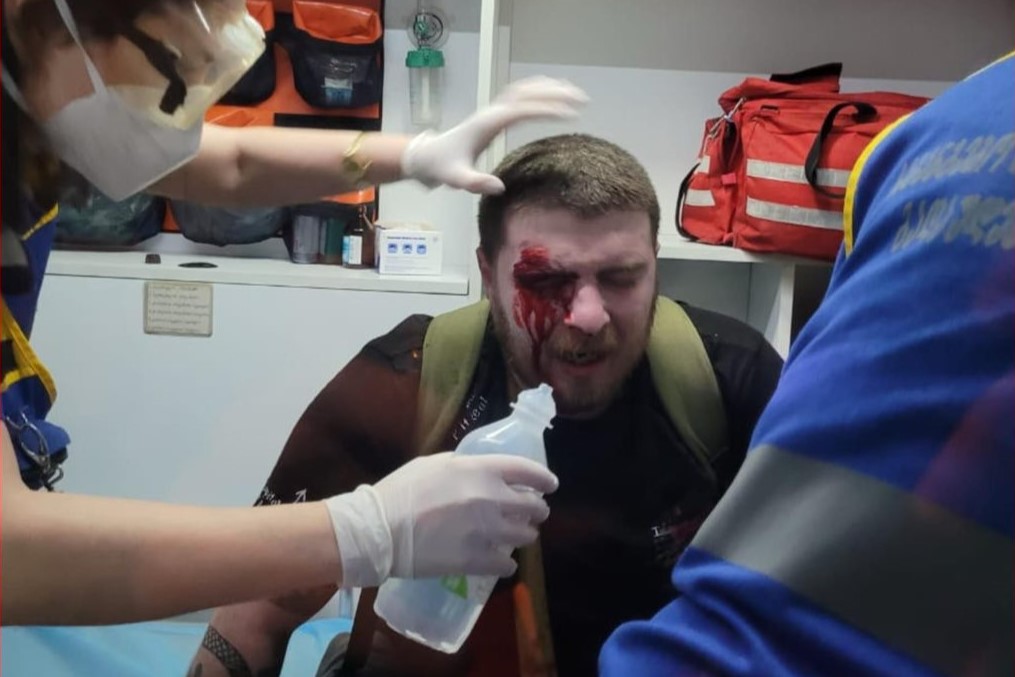
Darakhvelidze also accused protesters of using tear gas, and vowed to discover where they had obtained it.
Wednesday’s protest followed a night of police violence on Tuesday, during which police deployed pepper spray, tear gas, and water cannons as protesters continued to face off with them. Officers were also filmed punching and beating protesters. Levan Khabeishvili, the chair of Georgia’s largest opposition party, the United National Movement (UNM), also received injuries from police, including a concussion, a broken nose, and missing teeth.
Khabeishvili was hospitalised after Tuesday’s protest, but attended Wednesday’s plenary session in a wheelchair.
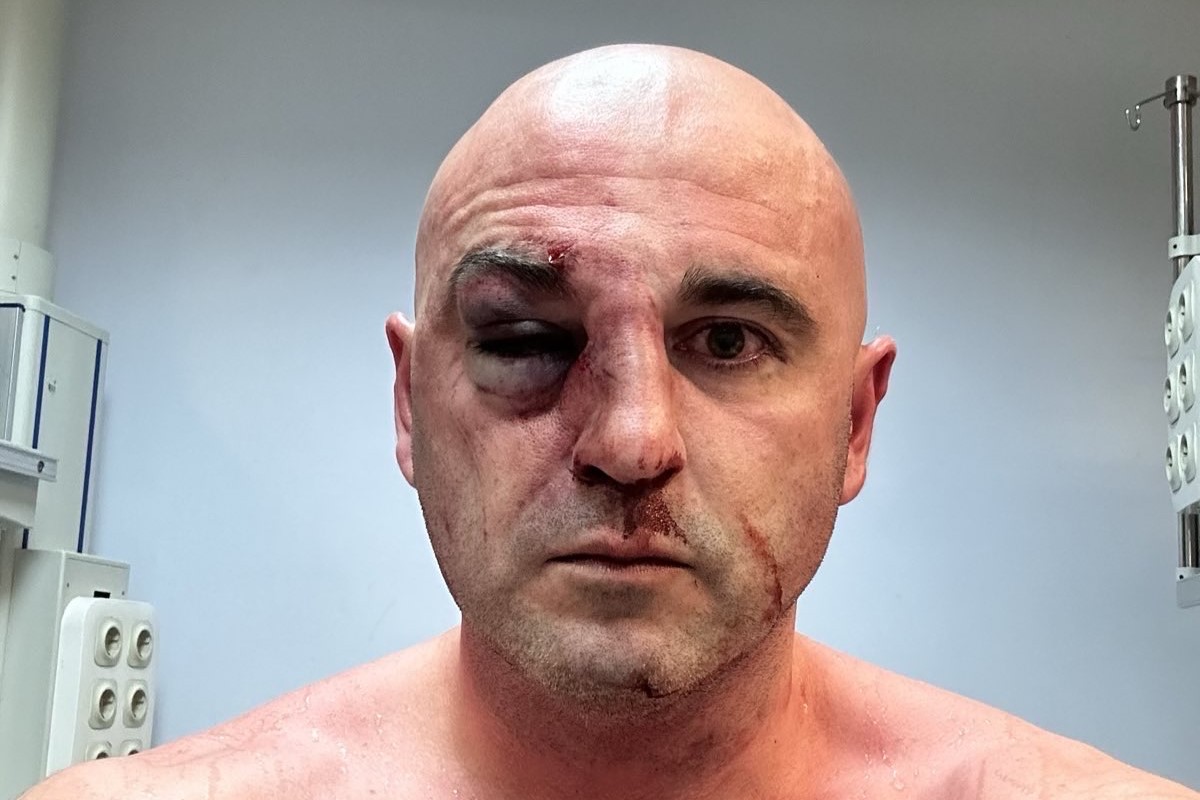
On Wednesday night, Georgian Dream’s parliamentary leader, Mamuka Mdinaradze, suggested that Khabeishvili goaded the police into attacking him.
‘Looking at his damaged face is very unpleasant’, Mdinaradze said. ‘But in the meantime, we must also say that he [Levan Khabeishvili] was not attacked, he himself was the instigator of the attack, he ran into a group of policemen and what happened there the investigation must say’.
‘Police officers are also human. If the mothers of these brave lads were cursed, it’s terrible, how can they remain patient?’
In a speech earlier that day, Prime Minister Irakli Kobakhidze also appeared to justify the police’s excessive use of force by saying that by saying that ‘violence begets violence’.
During his speech on Wednesday, Kobakhidze also said that the foreign agent law would contribute to ‘asserting state sovereignty and to […] preventing the violent protests of the political minority we saw yesterday’.
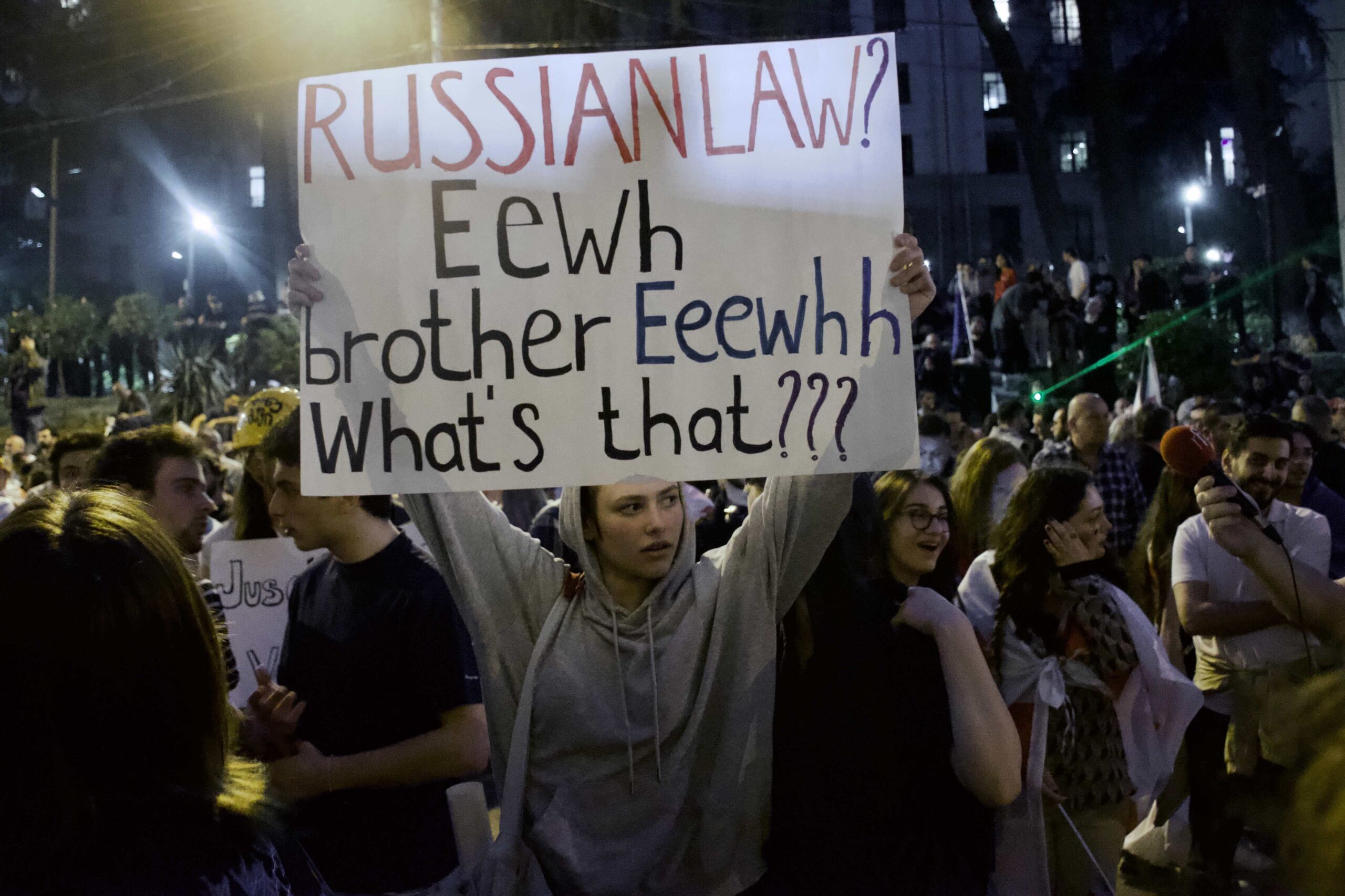
The Interior Ministry announced that 63 people were detained on Tuesday night and that six police officers were injured.
The debate within parliament was heated and chaotic. Speaker Shalva Papuashvili repeatedly turned off the microphones of opposition MPs as they were speaking, and ejected a number of them from the session.
Online media including OC Media were barred by the speaker from attending the hearings.
On Wednesday, nine Georgian civil society organisations assessed that the police response to the protests was ‘illegitimate and disproportionate’, noting that most detainees they had visited at the time displayed signs of abuse in detention.
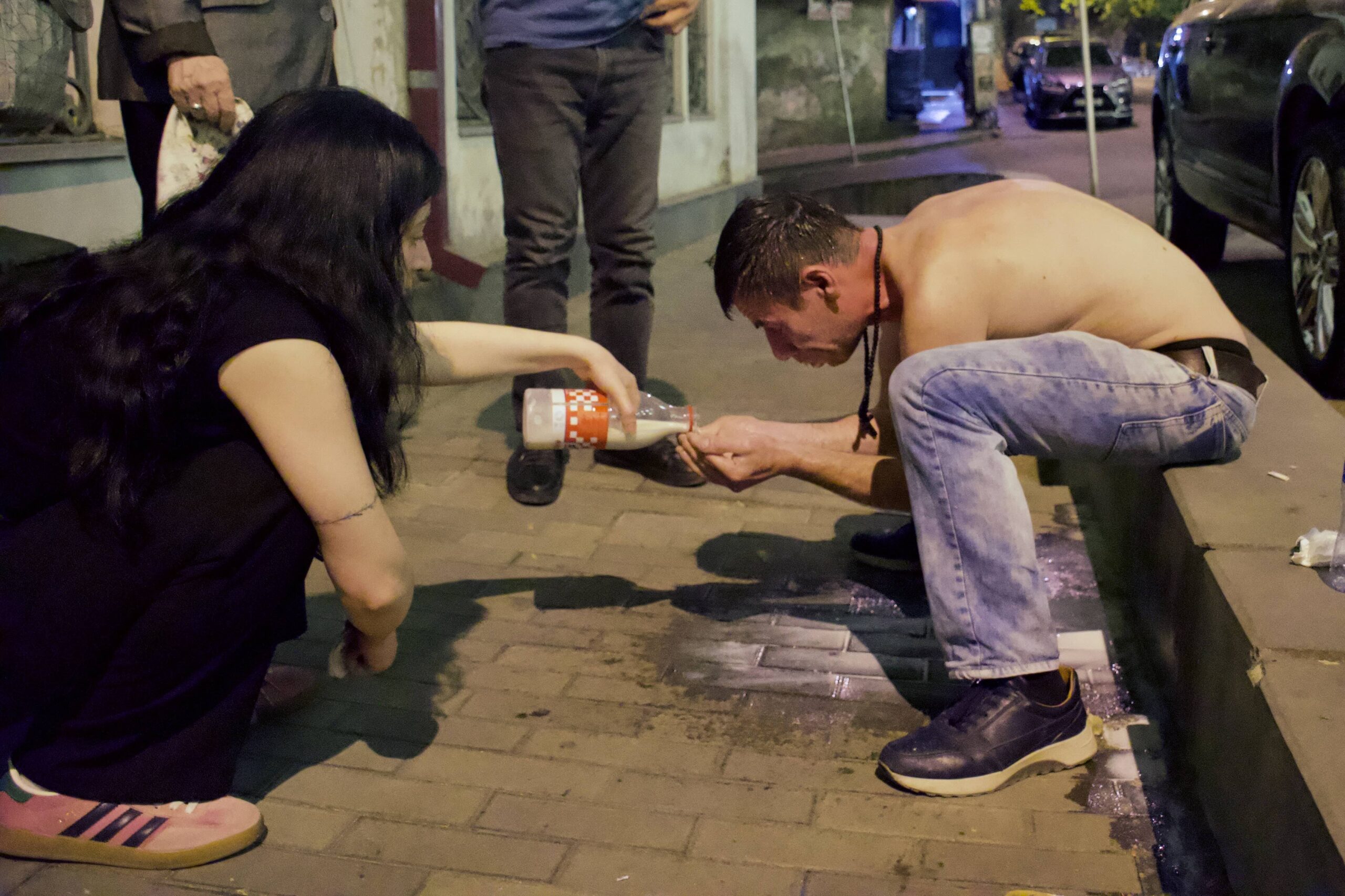
‘The physical force used amounted to torture, inhumane and degrading treatment, and the practice of administrative detention was used to excessively restrict freedom of assembly.’
Mediaombudsman, a Georgian media rights group, also stated that ten journalists and camera operators were targets of police violence while covering the protest of 30 April–1 May.
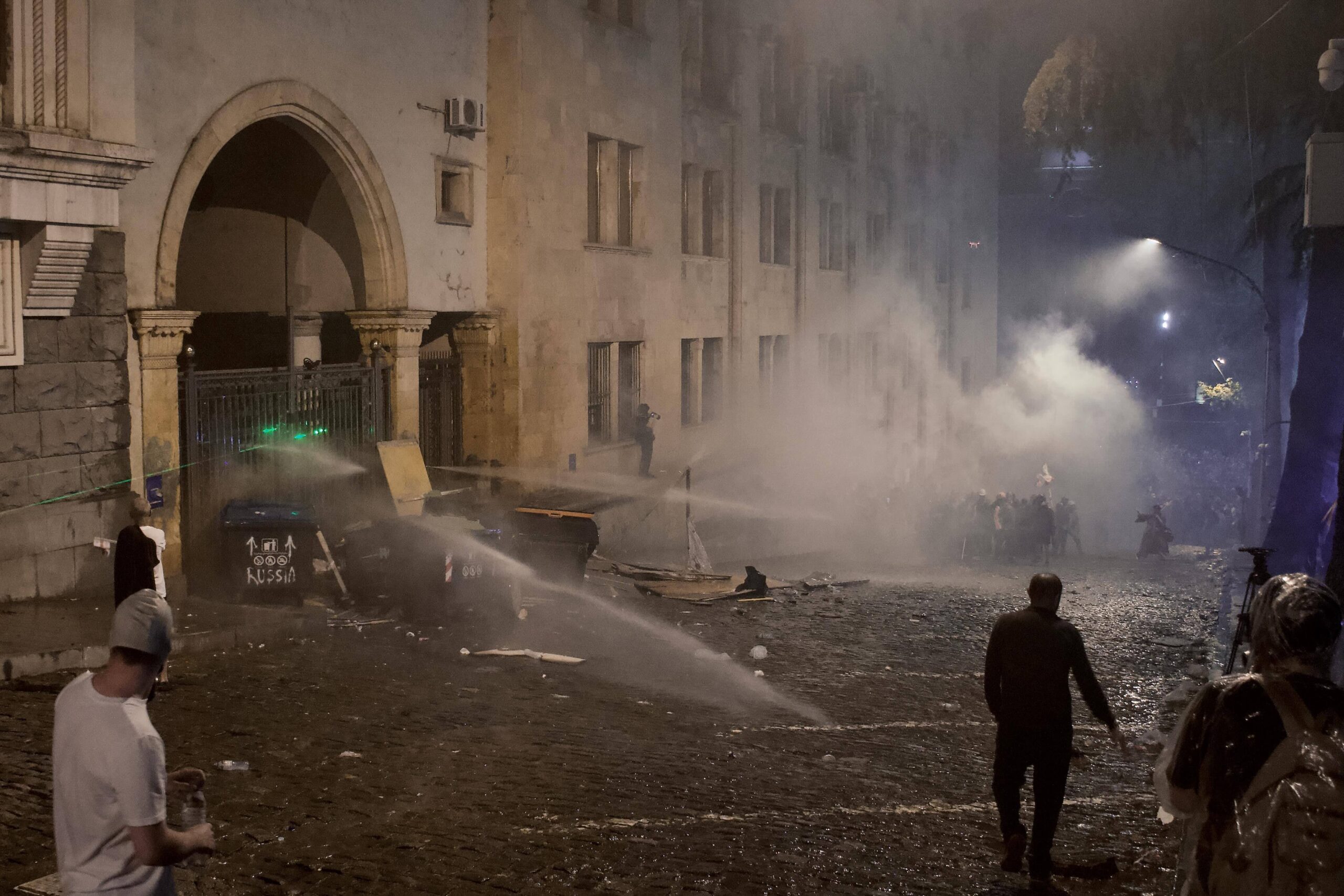
The authorities’ violent dispersal of the protests on Tuesday night was met with international condemnation, with the President of the EU Commission, Ursula von der Leyen, calling on the government to stay its course ‘on the road to Europe’.
I am following the situation in Georgia with great concern and condemn the violence on the streets of Tbilisi.
The Georgian people want a European future for their country.
Georgia is at a crossroads. It should stay the course on the road to Europe.
— Ursula von der Leyen (@vonderleyen) May 1, 2024
Josep Borrell, the the EU’s High Representative for Foreign Affairs, also condemned Georgian police’s use of force.
‘Georgia is an EU candidate country, I call on its authorities to ensure the right to peaceful assembly. Use of force to suppress it is unacceptable’, he wrote on X.




 2 May 2024
2 May 2024



